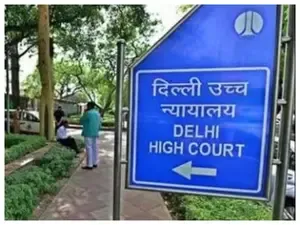Delhi High Court Issues Smartphone Usage Guidelines for Schools

Synopsis
Key Takeaways
- Smartphones should not disrupt classroom activities.
- Schools must educate on responsible online behavior.
- Collaboration with parents and experts is essential.
- Use of smartphones for entertainment is prohibited.
- Schools can implement tailored policies regarding smartphone usage.
New Delhi, March 2 (NationPress) The Delhi High Court has released a comprehensive set of guidelines regarding the usage of smartphones in educational institutions. The court emphasized that while students should have the ability to bring smartphones to school, their usage must be regulated and monitored.
A bench led by Justice Anup Jairam Bhambhani stated that schools are responsible for educating students about responsible online behavior, digital etiquette, and the ethical implications of smartphone use. It was highlighted that excessive screen time and social media interactions could potentially result in anxiety, reduced attention spans, and instances of cyberbullying.
The bench noted, "Smartphones should not interfere with classroom instruction, discipline, or the overall educational environment. Therefore, smartphone usage during class hours must be prohibited."
Additionally, the use of smartphones' cameras and recording features should be restricted in communal areas of the school and in school transportation. The Delhi HC indicated that the mobile usage policy should allow smartphone connectivity for safety and coordination purposes but should prohibit their use for entertainment or leisure activities.
The framework for regulating smartphone use in schools should be developed in collaboration with parents, teachers, and specialists to create a balanced approach that addresses the concerns and needs of all stakeholders.
The Delhi High Court clarified that educational institutions should have the flexibility to implement policies that cater to their specific situations. This may include permitting limited smartphone use in designated areas or enforcing stricter prohibitions during particular times and events.
The Kendriya Vidyalaya Sangathan (KVS) urged Justice Bhambhani's bench to establish guidelines for smartphone use in schools. The bench remarked, "Although guidelines were issued by the CBSE and KVS back in 2009, they have not yielded the expected results."
The bench further noted that even the recent advisory from the Directorate of Education (DoE) in 2023 provides only broad instructions aimed at preventing smartphone misuse in schools.
“It is crucial to recognize that the previously mentioned guidelines operate on the basic assumption that smartphone use in schools should be completely prohibited. However, this court acknowledges the significant changes in technology usage for educational and other relevant purposes over the years. Consequently, a total ban on smartphones for students is neither practical nor advisable,” the bench added.
While acknowledging the harmful effects of indiscriminate smartphone use, the Delhi High Court also recognized that smartphones can serve valuable purposes, such as facilitating communication between parents and their children, thereby enhancing student safety.
The court formulated guiding principles to balance the positive and negative impacts of allowing smartphone use among students during school hours. Throughout the hearing, the Delhi High Court welcomed inputs and materials from the National Commission for Protection of Child Rights, the Delhi Commission for Protection of Child Rights, and the KVS.










